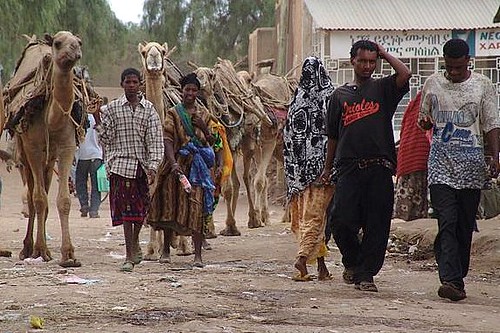The contract that entails exploration in Blocks 2 and 6 covers over 24,000 square kilometres west of the Calub and Hilala oil and gas discoveries, the company's Stockholm headquarters reported in a press release.
The contract was signed by Ethiopian Minister of Mines and Energy, Alemayehu Tegenu, and Chairman and General Manager of Lundin, Ian Lundin and James Philips.
After the signing ceremony, it was disclosed that the petroleum exploration company would not only create employment opportunities for Ethiopians, but it would also utilise domestic goods and services provided they are readily available at competitive prices and of comparable quality.
Ian Lundin described his independent oil company as highly experienced in the field of petroleum exploration and that it is at the moment engaging in petroleum exploration and development activities in Nigeria, Sudan, Tunisia, France, Netherlands, Norway, United Kingdom, among others.
After the October announcement of oil discovery in Uganda, foreign oil companies are said to be scrambling to explore the East African region's oil and gas, including Ethiopia. So far, 17 such companies have shown interest in developing Calub and Hilala gas fields, which are in the eastern part of Ethiopia and where Blocks 2 and 6 are located.
Calub gas reserves are estimated to have covered 76.41 billion cubic metres while reserves in Hilala 48.1 billion cubic metres. The two gas fields cover a total area of 285 square kilometres.
The new agreement allows Lundin East Africa Bv to hold a 100 percent interest in the contract area for the duration of the exploration period. Further, the Ethiopian government is given the option to participate with up to 10 percent interest following any commercial discovery.
The Swedes are to allocate US$ 1.2 million to explore and develop the petroleum basin in the first four years of the exploration period, according to the contract, but the development and production period go up to 25 years.
Also in nearby Uganda, there is euphoria over new oil discoveries as the region is sailing up as a new hydrocarbon producing zone attracting foreign investments. In October, Ugandan President Yoweri Museveni used the national thanks-giving service day in the capital Kampala to announce the discovery of oil in his country. This discovery followed several years of the country's painstaking search for oil.
President Museveni said Uganda's search for oil, which cost companies at least US$ 70 million, started in the country's western regions, with the oil blocks of Waranga 1, Waranga 2 and Mputa in 1989. An Australian oil exploration company, Hardman Resources Ltd, made the discoveries in June this year but the government was waiting for a fitting day to make the news public to its citizens.

Ogaden screet scene (photo courtesy: CharlesFred's photostream)
1 comment:
Friends of Ethiopia, I really enjoyed browsong through your site. The depth of information that you give your readers is breathtaking!
I was aware that Ethiopia has a comparatively diverse economy, but was not aware that Ethipia had oil. It will be wonderful if this translates into more local employment and business opportunities.
Until the next time...Keep on Blogging-Don't stop!
Post a Comment